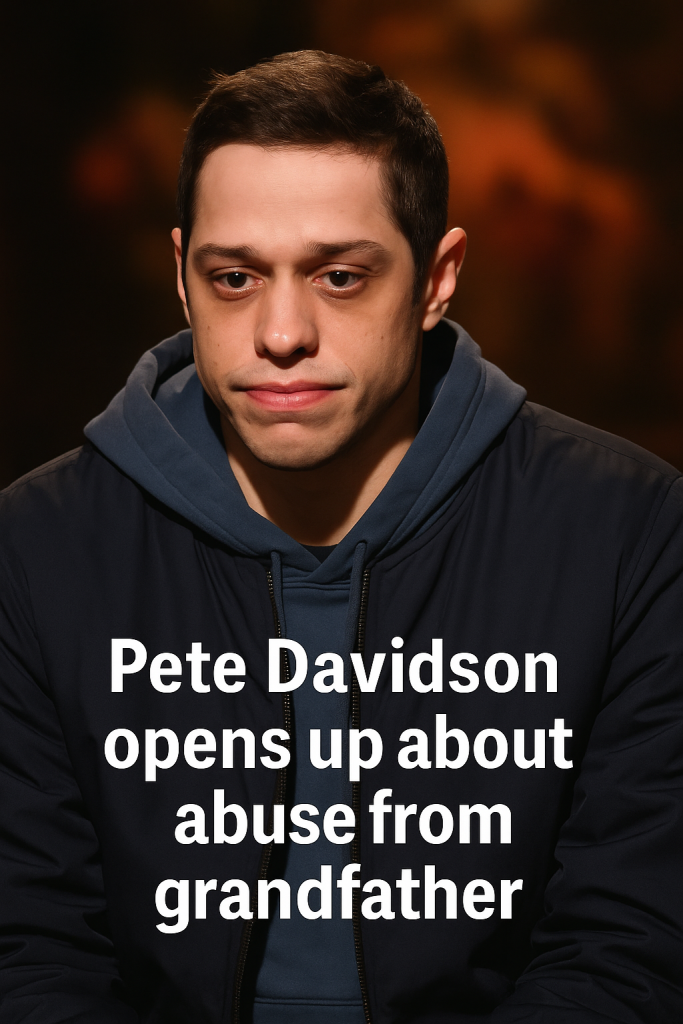In a startling and emotionally charged revelation, comedian and actor Pete Davidson has opened up about the deeply troubling abuse he endured from his grandfather. During a recent interview, Davidson expressed raw and unfiltered feelings, including the shocking statement, “I want him to die slow.” This candid admission sheds light on a dark chapter of the Hollywood star’s personal life, providing new insight into the complex family dynamics that have shaped him.
Known for his brutally honest humor and willingness to discuss mental health openly, Pete Davidson did not hold back when recounting his tumultuous relationship with his grandfather. He described the elder man as abusive, revealing suffering that has haunted him for years. While previous interviews touched on Davidson’s struggles with trauma and loss, this marks one of the first times he has explicitly addressed the abuse from a family member and the extreme emotions it provokes.
“There was a lot of pain there, a lot of darkness,” Davidson said during the interview. “I’m thrilled to see him suffering, because of what he did to me.” He explained that the abuse was not just physical but emotional, deeply impacting his mental wellbeing and relationships growing up.
The public’s reaction to Davidson’s confession has been intense. Social media platforms have exploded with support for the star, applauding his bravery for speaking out against familial abuse, a topic often shrouded in silence. Many fans have expressed empathy, acknowledging the courage it takes to share such painful truths openly.
Experts in trauma and abuse have weighed in, highlighting how survivors sometimes harbor complex feelings toward their abusers, including anger and a desire for justice or retribution. Davidson’s statement underscores the deep scars abuse can leave and the ways it shapes an individual’s psyche.
Throughout his career, Pete Davidson has been candid about his struggles with mental health, substance abuse, and the loss of his father, a firefighter who died during the 9/11 attacks. His willingness to expose his vulnerabilities has made him one of the most authentic voices in entertainment, resonating deeply with fans worldwide.
Davidson’s recent revelations add a new layer to his narrative, showing not just resilience but a painful confrontation with the shadows of his past. While some may find his harsh words about his grandfather shocking, they reflect a survivor’s emotional reality after enduring profound abuse.
As discussions about abuse within families gain more visibility, Davidson’s story serves as a powerful reminder of the importance of listening, believing survivors, and providing support for those coping with trauma. It also opens a dialogue about how unresolved family pain can affect public figures, whose lives often seem flawless from the outside.
In closing, Pete Davidson’s courageous disclosure about his grandfather’s abuse and his candid expression of resentment highlight a fundamental human truth: the scars of abuse run deep, and healing is a complex, ongoing journey. His story invites greater awareness, empathy, and understanding around difficult family dynamics and mental health challenges.



